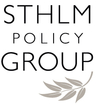Snapshots from Eastern DRC May 26
Sthlm Policy Group · Comments: 0At the heart of the East African Rift Zone, the Nubian and Somalian African continental plates are pulling away from one another making Eastern Congo an area with dramatic landscapes and many volcanoes. The area also has a rich wildlife and is home to some of the few remaining mountain gorillas in the world. However, what could have been an attractive tourist destination with a dense jungle, lakes and exotic wildlife, is instead struck by a deadly conflict that has caused immeasurable suffering over the decades.
Situated in the middle of the Great Lakes region, the North and South Kivus have historically been connected to its neighbours, with trade routes and migration spreading across borders. Tension between different groups has been common features of everyday strive for livelihood. However, the widespread description of the conflict in the Kivu provinces in eastern DR Congo as merely a discord amongst ethnic lines is a dangerous over-simplification of the situation that risk playing into the hands of one or another of the parties. Access to scarce land has been a cause for tensions in the Kivus ever since the colonial time. In a society lacking even the basic state services of security and order, not to mention physical infrastructure, influential individuals and groups are fighting for power and economic profits.
In the Eastern parts of the country, the state has not been in control for a very long time. While 80% of the national army is deployed in the East, presence of police, civil administration and judicial systems are practically non-existing. This gives a strong argument for state building as core of the OECD/DAC principles for good international engagement in fragile states and situations. The International Security and Stabilisation Support Strategy is an attempt to address the most critical issues. The team were lucky to take part of an inauguration of a police building in Ituri, when 30 police officers were officially deployed in the town of Bogoro. The role out of civilian state authorities is not an easy task in the middle of an ongoing conflict in which the state is an active part. It requires commitment from national and international partners and it involves a quite high degree of risk-taking. It is clear however, that the only way to address the widespread sexual violence and human rights abuses in the long run is to strengthen the security and justice system.
At Sthlm Policy Group, we are very grateful for all inspiring meetings and the invaluable insights provided by international staff and the people of eastern Congo. Thanks!
For more pictures from DRC, click the Galleries link on the right.

Comments: 0